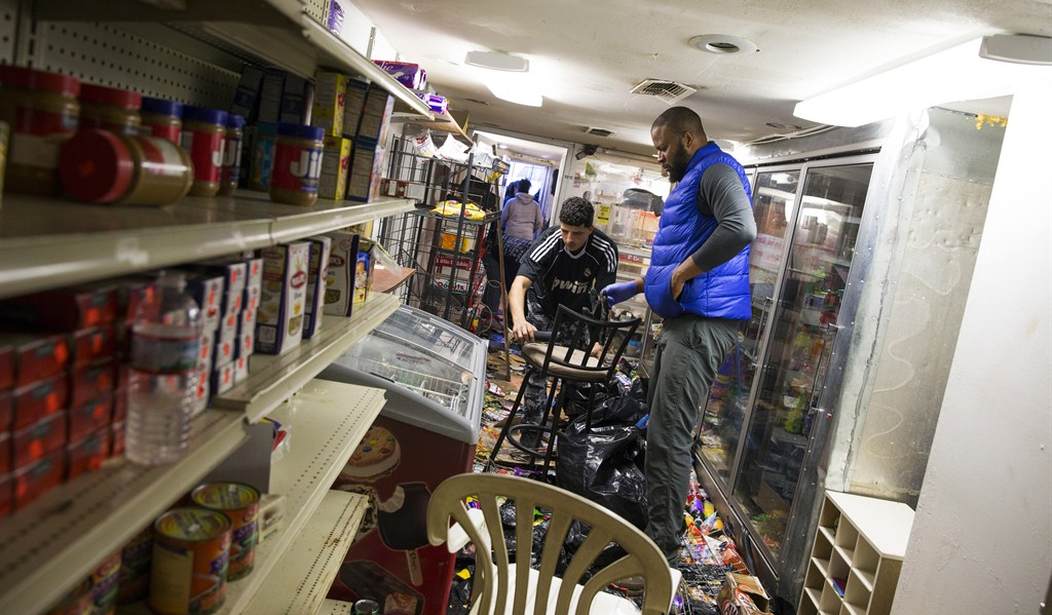"The education system has failed them."
That is part of the explanation that Billy Murphy, a lawyer representing the family of Freddie Gray -- who died after his spine was severed while in police custody -- gave CNN's Wolf Blitzer for why some young men in Baltimore rioted on Monday afternoon after Gray's funeral.
"These kids have had bad experiences in school," Murphy said.
"They are frequently harassed by the police," he said. "They are unemployed because there's no summer jobs, and so this is what you would expect in a tense time like this. That's not a justification, though, because what they're doing is wrong, and we need to stop them. And those of us who are more mature in Baltimore, black and white together, we need to have a demonstration that shows them the right way to do it, rather than permitting them to go without leadership, the way that they're going now."
He is right.
And one way to start moving things back in the right direction is to give every parent in Baltimore a voucher worth $17,329 that they can redeem at any school -- public, private or religious -- to which they choose to send their child.
Why $17,329?
Actually, it probably should be a bit more than that. But, according to the U.S. Department of Education, $17,329 is the total expenditure that the Baltimore City Public Schools made per student in the 2010-2011 school year, the latest year for which the Department of Education has reported this data. ($17,329 in 2011 dollars, according to the Bureau of Labor Statistics inflation calculator, equals about $18,083 in 2015 dollars.)
What did parents and taxpayers get in return for that $17,329 when it was spent by the public schools?
Well, judging by National Assessment of Educational Progress tests, most of the students did not get a good education.
In 2013, according to the Department of Education, only 16 percent of the eighth graders in the Baltimore City Public Schools scored at or above grade-level proficient in the NAEP reading test. That same year, only 13 percent of the eighth graders in the Baltimore City Public Schools scored at or above grade-level proficient in math.
Recommended
According to the Department of Education, eighth graders in the Baltimore City Public Schools had average NAEP math and reading scores that were lower than the national public school averages, lower than the Maryland averages, and lower than the averages for the nation's large cities.
The Baltimore City Public Schools are not failing for lack of money or personnel.
In the 2012-2013 school year, according to the Department of Education, the city's schools enrolled 84,747 students. But they also employed approximately 5,380 classroom teachers -- meaning they had a student-to-teacher ratio of 15.75 students per teacher.
In addition to the 5,380 classroom teachers, the Baltimore City Public Schools also employed 1,690 "instructional aides," 422 "school administrators," 482 "district administrators," approximately 508 "school administrative support" personnel, approximately 628 "student support services" personnel, approximately 116 "guidance counselors," approximately 86 "librarians" and "media specialists," 75 "instructional coordinators and supervisors," and approximately 1,150 workers providing "other support services."
In total, the Baltimore City Public Schools had about 10,165 teachers and other staff on the payroll in the 2012-2013 school year -- or about 1 for every 8.3 students enrolled in the schools.
In the 2010-2011 school year, according to the Department of Education, the Baltimore City Public Schools had $1,441,019,000 in revenue -- with 62 percent coming from the state government, 19 percent coming from the federal government and 19 percent coming from local government.
The schools turned around and spent a total of $1,452,189,000.
Despite this, the kids in the Baltimore public schools got a bad deal. They deserve better.
Give them a choice. Give every parent or guardian of every student eligible to attend the Baltimore City Public Schools a voucher worth the same amount those schools spend per student. Let them redeem it at any school anywhere, public, private or religious.
If that means churches and other private organizations -- and groups of parents -- in and around Baltimore begin starting up their own schools to educate local children according to their own values, then that may mean schools that produce better test scores and schools that produce better citizens.
























Join the conversation as a VIP Member